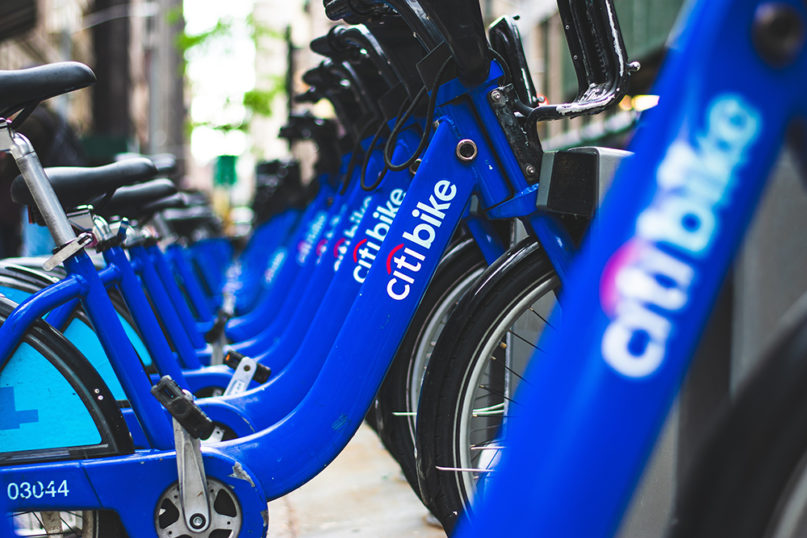(RNS) — I have taken to cycling again. Before coronavirus hit New York, I would grab a Citi Bike, one of the blue rent-a-bikes that line the streets of the city, and cycle all the way across Manhattan, take the bridge or ferry to Brooklyn, ride all the way through that borough, then all the way back. It was my favorite form of exercise.
And I’ve done them all. For all that I’ve critiqued wellness culture and the cult of exercise in the years before quarantine hit, my days revolved around exercise. I have tried every form of boutique fitness class: six or seven days a week on ClassPass, the service that granted me access to a world of exercise classes at a (relatively) discounted rate. I’ve had memberships at private studios and barre classes at Equinox.
I had a host of excuses — I valued my health, I could think better — but the truth was I was motivated not just by vanity but by that intersection of vanity and fantasy. I didn’t look vastly different depending on whether I was attending daily boutique classes or just took long, frequent walks, or was generally (and inexpensively) active. But somehow, I felt better: Somehow the hours spent in the Equinox studio or walking to the Equinox studio or eating the egg-white wrap on the way to the Equinox studio translated into a vision of myself I preferred: as somebody disciplined, as somebody with the right sort of body.
Last year, as I prepared for a wedding that, mercifully, never went ahead, I bought in — more than ever — to the fiction of self-improvement. My teenage eating disorder, managed but never cured, now at last had a socially acceptable outlet: I could rationalize my spending and the increasing time spent at the gym as a line item on the socially acceptable “wedding budget.”
RELATED: Fleshly sacraments in a viral, virtual world
We are accustomed in the Christian tradition to thinking of sensuality as a source of evil, of bodily presence and incarnation as loci of temptation. But our current culture applies the virtue of discipline — once the antidote to hedonist indulgence — precisely to our physical selves, to rigorously creating an Instagram-ready body and bride arms. It’s a culture that trades less in actual sex than it does in the fetishistic consumption of porn. It draws us into the marketplace of dating apps, where image is our capital.
But in fact these are the spiritual sins of disembodiment, not incarnation: a refusal to be present within the world. The fantasies of Tinder dates never made flesh, the commodification of feminine thinness are the aestheticized pleasures of second-order experience. Our culture is obsessed with distance, with alienation, with denying the flesh as much as succumbing to it.
My own search for the perfect bride’s body, my exercise obsession was at its core spiritualized anorexia: It made a discipline out of disassociation. I could say I made a virtue out of self-denial, but that would be too simplistic: At its core, the wellness doctrine I embraced, however unwittingly, was one of pure legitimized aesthetics.
RELATED: Click here for complete coverage of COVID-19 on RNS
Around the time that I realized my mistake, I also discovered Citi Bike. My long-distance cycles around New York — from the Upper West Side to Battery Park and back, on a $150-a-year Citi Bike membership — were originally just something I did to pass the time.
I found, however, that what those rides offered me was an almost countercultural vision of presence. I noticed not my own body but the outside world — unfamiliar buildings and spaces, the inhabitants of Chelsea or Red Hook or Bedford-Stuyvesant as I pedaled by. Outside of the artificial confines of an exercise studio, my rides focused my attention not inward but outward, on the city I loved.
In lockdown, I’ve started cycling again. It’s among the easiest forms of outdoor exercise to adapt to our state of social distancing. The streets are virtually empty; the few other riders masked. It’s offered me, too, the chance to see what I’ve most missed about the lockdown: the totality of a city, however temporarily diminished. It’s exercise not as expensive commodity but as far-more-affordable presence: an embrace, rather than a denial, of what it means to be in the world.
Meanwhile, I’ve canceled my Equinox membership.






